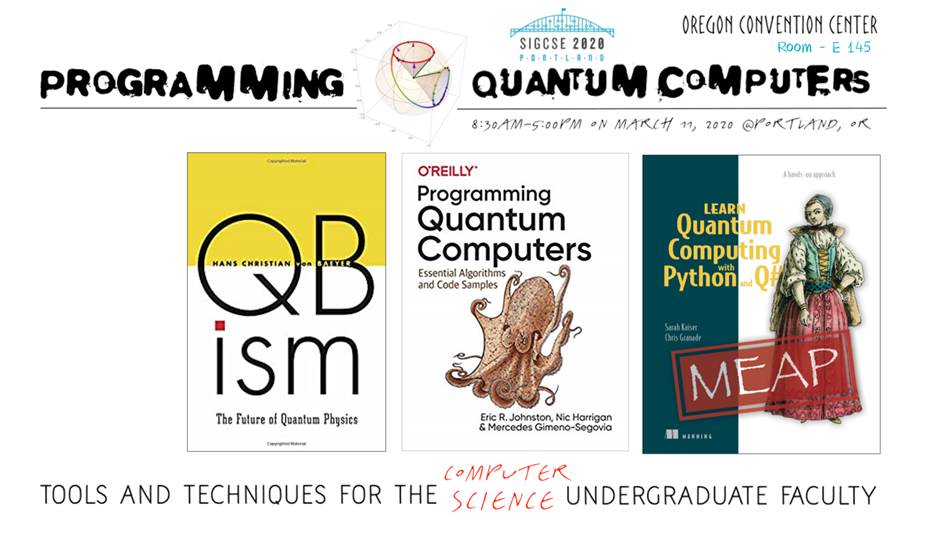
Hans von Baeyer
Eric R Johnston
Sarah C Kaiser
Daniel Koch
Mariia Mykhailova
William D Oliver
Gerardo Ortiz
Amr Sabry
James Weaver
Organizers:
There is a book published in 2006 by Vazirani (with Dasgupta and Papadimitriou) that is unique among its kind. It's one of the few books on algorithms (if not the only one) that has a chapter dedicated to quantum algorithms that blends in so well with the classical material that precedes it. The book is so well thought out that it ends where it starts but on a much higher plane. It opens up new realms of exploration with generosity and explicitly asks at the end (this was 2006, after all): "Can quantum computers be built?" Over the last couple of years the many software and hardware quantum platforms now accessible in the cloud have moved the emphasis to a slightly different aspect. It now seems imperative to start teaching this new technology to undergraduates to raise a new generation of computer scientists to develop it further. As was already pointed out there's a real shortage of talent in quantum computing, which brings up an even more stringent challenge: how do we go about creating a new generation of teachers (or retraining the current one) so they can be quickly able to function at that level? This is a full day event especially designed for an audience of dedicated, innovative and motivated undergraduate CSCI teachers, with or without prior experience in quantum computation and quantum information, as part of a series of events dedicated to quantum computing and quantum programming at SIGCSE 2020.
Come to hear about the new reality of quantum hardware and the many extremely accessible online software platforms for quantum computation. And as this topic is making its way down through the curriculum slowly but steadily from the PhD level to advanced (often cross-listed) graduate courses in Physics to (ultimately) undergraduate courses in CSCI, one can even envision a curriculum with courses in (quantum) hardware and (quantum) engineering. Those courses can only be developed by the faculty that are convinced and aware of this impending reality. Come to learn from our world-class panel of experts and subsequently stay in touch with them (for the long term). In the short term we're trying to give the interested undergraduate computer science faculty a set of tools and relevant information so they can start teaching this topic properly in the classroom right away.
Updated program (as of March 4, 2020):
08:00-08:30 Setup/Breakfast 08:30-09:20 Introduction to Quantum Computing (William D Oliver) MIT xPro QCF Program [ Course 1 | Course 2 ]
09:20-09:30 Break 09:30-10:20
10:20-10:30 Break (Refreshments) 10:30-11:20 Fundamentals of Quantum Programming (Eric Johnston)
11:20-11:30 Break 11:30-12:20 Introduction to IBM Qiskit (Daniel Koch)
12:20-13:00 LUNCH (boxed, menu) 13:00-13:50 Qiskit Blocks for Educators (James Weaver)
13:50-14:00 Break 14:00-14:50 Anatomy of a Photonic QPU (Eric Johnston)
14:50-15:00 Break (Refreshments) 15:00-15:50 Quantum Programming with Python and Q# (Sarah C Kaiser) (Replaced last minute w/ Teaching Quantum Computing ... by Mariia Mykhailova and Krysta Svore.)
15:50-16:00 Break 16:00-17:00 QBism: The Future of Quantum Physics (Hans Christian von Baeyer )
Additional information (like an abstract of sorts) for each session to be posted here soon.